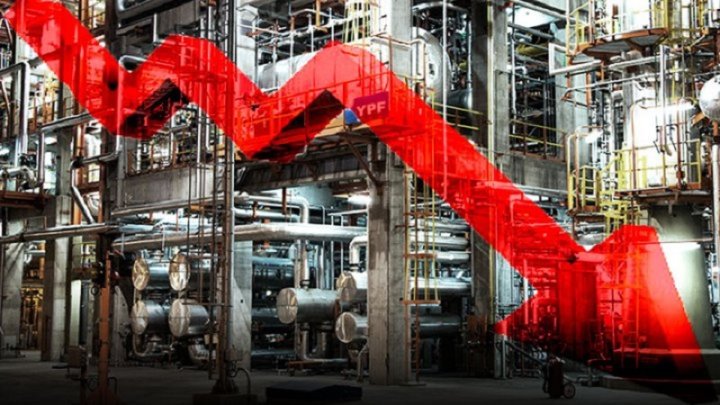
This Wednesday, Indec published the manufacturing industrial production index (manufacturing IPI) corresponding to the month of November 2024, which showed a drop of 1.7% compared to the same month of 2023. In the monthly variation, there was a slight improvement of 0 .4% compared to October. However, at a year-on-year level, manufacturing production continues in the red, accumulating a fall of 10.7% between January and November 2024 compared to the same period in 2023.
#DatoINDEC
The industry fell 1.7% year-on-year in November 2024 and grew 0.4% compared to the previous month https://t.co/dkslUDKQex pic.twitter.com/JgPM1QiUwR— INDEC Argentina (@INDECArgentina) January 8, 2025
Twelve of the sixteen divisions of the manufacturing industry showed year-on-year declines in November. Among the most affected branches are, and in order of their incidence at the general level, decreases were recorded in: “Non-metallic mineral products”, 20.0%; “Rubber and plastic products”, 16.2%; “Wood, paper, publishing and printing”, 7.6%; “Metal products”, 13.0%; “Basic metal industries”, 6.6%; “Textile products”, 17.0%; “Substances and chemical products”, 2.1%; “Clothing, leather and footwear”, 2.2%; “Furniture and mattresses, and other manufacturing industries”, 3.1%; “Motor vehicles, bodies, trailers and auto parts”, 0.7%; “Tobacco products”, 10.8%; and “Other transportation equipment”, 2.9%.
The branches that had increases were: “Food and beverages”, 8.4%; “Machinery and equipment”, 7.2%; “Other equipment, devices and instruments”, 3.4%; and “Oil refining, coke and nuclear fuel”, 1.5%.
Construction was another key sector of the economy that also showed a 23.6% year-on-year decline in November. In the monthly comparison, it showed an increase of 2.2% compared to October, while eleven months of 2024 of the original series index registered a fall of 28.5% compared to the same period in 2023.
#DatoINDEC
Construction fell 23.6% year-on-year in November 2024 and rose 2.2% compared to October https://t.co/f4oPf0Df4y pic.twitter.com/RCNYCxrTK4— INDEC Argentina (@INDECArgentina) January 8, 2025
According to the Synthetic Indicator of Construction Activity (ISAC) published this Wednesday by Indec, “The data from Apparent consumption of construction inputs in November 2024 show, compared to the same month of the previous year, decreases of 46.9% in ceramic sanitary articles; 34.8% in round iron and steel for construction; 34.5% in granitic and calcareous mosaics; 30.5% in hollow bricks; 30.4% in plaster; 28.7% in ceramic floors and coverings; 26.3% in plasterboard; 25.1% in manufactured concrete; 20.6% on the rest of the inputs (includes taps, seamless steel tubes and glass for construction); 14.7% in Portland cement; 5.0% on construction paints; and 1.5% in lime. Meanwhile, an increase of 22.4% is observed in asphalt.”
These results of industrial collapse and drop in construction and consumption of inputs necessary for the sector are a direct consequence of the government’s measures. The recession of activity that is expressed in historically low levels of consumption driven by the loss of purchasing power of salaries; along with the spending adjustment that paralyzed public works; They manage to explain this situation.
The crisis in industry and construction will have its consequences on the level of employment. The ISAC measures the jobs registered in construction activity in the private sector, and “in October 2024 this indicator registered a decrease of 14.0% compared to the same month of the previous year. In the accumulated January-October 2024, this indicator presented a decrease of 17.4% compared to the same period of the previous year.” These are job positions that present contributions and contributions to the pension system.
Official data still do not capture signs of clear recovery in the last months of 2024, contrary to the official discourse and the celebration observed in the “markets”. Milei and Caputo continue to guarantee fertile conditions for financial income, receiving the support of international financial capital that is expressed in the reduction of country risk, among other factors.
Currently the party is for a few, the purchasing power of salaries and pensions is not recovered and is increasingly enough for less. If this crisis continues in the industry, layoffs will occur, and in some extreme cases factory closures such as in Dánica or the sneaker company Dass. To protect jobs, it is necessary to articulate a plan to fight against the adjustment of Milei, the businessmen and the IMF.
Source: www.laizquierdadiario.com

